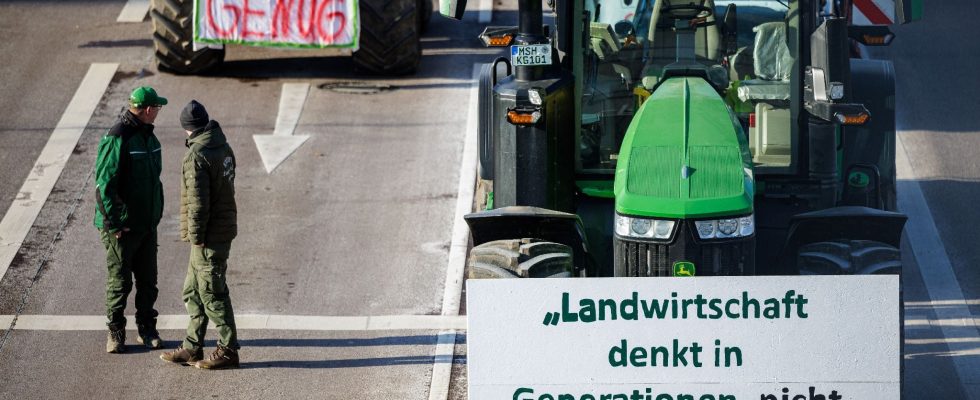The Greens are no longer “jokes”, as in the 1980s and 1990s, but “enemies”. German peasants, who considered them “romantic idealists”, now judged them to represent a threat to the future. “For the homeland, let’s drive the environmentalists out of the country”, we read on a tractor during one of the many days of national action, in mid-January.
Scapegoats for all their problems, the Greens, in power in Berlin and in several Länder (regions), are accused of being an “urban elite” steeped in ideology. The green Minister of Agriculture, Cem Özdemir, is whistled at each of his interventions. The most radical prevented Robert Habeck, the Minister of Economy and Climate, from disembarking from a ferry on the coast of the North Sea at the beginning of January, returning from vacation.
Hasty measures taken
Farmers have been on the streets since the beginning of the year to protest against the Scholz government’s cost-saving measures taken hastily, without consulting representatives of the agricultural world. They seem determined to continue the movement until they have won their case. “If nothing changes, I can no longer rule out an eruption,” warned the president of the Farmers’ Federation, Joachim Rukwied.
“The Greens give the impression of making decisions without considering the economic and social consequences on the ground,” analyzes Klaus Dörre, labor sociologist at the University of Jena. By brutally removing diesel subsidies, they triggered the same wave angry after Emmanuel Macron’s decision on the unexpected increase in fuel prices in 2018.”
“This decision was the trigger,” confirms Ursula Münch, director of the Academy of Political Science in Tutzing, Bavaria, who also draws a parallel with the yellow vests. And to clarify: “This government is made up of people who are often unaware of what is happening in the countryside.”
Overwhelming bureaucracy
In 2019, the “Save the bees!” petition in Bavaria initiated a divorce. Bavarian farmers, who can no longer mow grass freely in their meadows, have interpreted the new biodiversity law as an attempt to put them under supervision. “Reducing meat consumption, necessary for the climate, is an environmentalist idea,” adds Ursula Münch. “For farmers, it is a declaration of war.”
The farmers’ uneasiness, however, runs much deeper. “When 40% of the price of bread in bakeries went directly into the pockets of farmers in 1950, it is only 5% today,” adds Klaus Dörre. As in France, the peasant world feels crushed by bureaucratization, European regulations and directives. He denounces in particular the “stupid protection of wolves”, “crappy soya” from South America or “the exploitation of farmers by large distributors”.
In Germany too, small farms are disappearing in favor of larger ones. Since 2003, the number of dairy farms (Germany is the leading milk producer in Europe) has been halved. At the same time, the number of cows per farm has doubled. A concentration which should, as in France, continue in the coming years. Like the unhappiness of the countryside if nothing changes.
.
